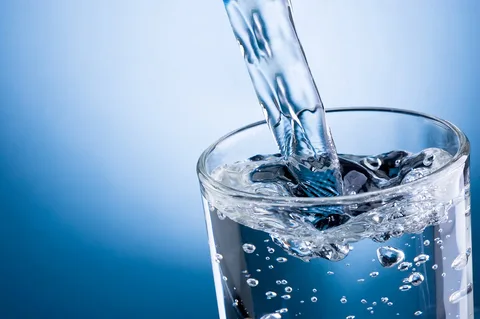Sponsored
How to Choose the Right Water Filtration System for Your Home

Clean, safe water is one of the most essential needs for any household. Whether you’re drinking it, cooking with it, or using it for hygiene, the quality of your water can significantly affect your health and overall well-being. Unfortunately, not all tap water is created equal. Contaminants such as chlorine, sediment, heavy metals, and even microorganisms can make water less than ideal for everyday use. That’s why choosing the right water filtration system is a critical decision for homeowners who value safety, taste, and efficiency.
When searching for the perfect solution, many homeowners find that a Residential Drinking Water Filtration System offers the most reliable results. These systems are specifically designed for household use, targeting contaminants commonly found in municipal and well water. From basic carbon filters that improve taste and odor to advanced reverse osmosis units that remove nearly all dissolved solids, residential filtration systems come in a variety of configurations to suit different water needs and budgets. By selecting a system that fits your water quality requirements and household lifestyle, you can ensure your family enjoys clean, fresh water straight from the tap.
Understand Your Water Quality
The first step in choosing a filtration system is understanding what’s in your water. Even if your local water utility reports that your water is safe to drink, it may still contain undesirable chemicals, minerals, or microorganisms. Start by reviewing your water quality report, which your municipal supplier should provide annually. If you rely on well water, consider conducting a comprehensive water test through a certified laboratory. These tests will reveal contaminants like lead, arsenic, nitrates, and bacteria that may require specialized filtration methods. Knowing the exact composition of your water allows you to select a system that specifically addresses your needs rather than spending money on unnecessary filtration.
Consider the Type of Filtration System
Water filtration systems vary widely, both in technology and complexity. Here are some of the most common types:
-
Activated Carbon Filters: These filters are excellent for improving taste and removing chlorine, volatile organic compounds (VOCs), and some pesticides. They are typically affordable and easy to maintain, making them a popular choice for households seeking basic filtration.
-
Reverse Osmosis Systems: RO systems use a semi-permeable membrane to remove up to 99% of dissolved solids, heavy metals, and other contaminants. They are ideal for households with hard water or concerns about specific chemical contaminants.
-
UV Purifiers: Ultraviolet systems use UV light to disinfect water by deactivating bacteria, viruses, and other pathogens. UV systems are often paired with other filtration methods to provide comprehensive protection.
-
Whole-House Filters: These systems are installed at the point of entry, filtering all the water that enters your home. They are excellent for families who want clean water not just for drinking, but also for bathing, cooking, and laundry.
Evaluate Your Household Needs
The right filtration system also depends on your household size, water usage, and lifestyle. For example, a family of four using water for cooking, drinking, and bathing will require a system with higher capacity than a single-person household. Think about the flow rate, maintenance requirements, and filter replacement frequency. Some systems, like countertop or under-sink units, are easy to install and maintain but may only supply filtered water to a single tap. Whole-house systems, on the other hand, require professional installation but provide filtered water throughout your home.
Check Certification and Standards
Always choose a filtration system that is certified by reputable organizations such as NSF International or the Water Quality Association (WQA). Certification ensures that the system has been rigorously tested and proven to remove the contaminants it claims to address. Look for certifications specific to your concerns, whether that’s lead removal, microbial reduction, or chemical filtration. This step provides peace of mind that your investment is truly protecting your family’s health.
Consider Maintenance and Operating Costs
Water filtration is not a one-time purchase; it requires ongoing maintenance. Some systems need filter replacements every few months, while others last a year or more. Be sure to factor in the cost of replacement filters, energy usage, and any professional servicing required. A system that seems inexpensive initially may become costly over time if replacement parts are expensive or hard to find. Conversely, investing in a higher-quality system upfront can save money and hassle in the long run.
Think About Taste and Aesthetics
While safety is paramount, taste is also a crucial factor. A system that leaves your water tasting metallic, flat, or unpleasant may discourage your family from drinking enough water daily. Test the water after installation to ensure it meets your expectations for taste and clarity. Additionally, consider the system’s design and footprint. Some under-sink units are compact and unobtrusive, while others may take up significant cabinet space.
Future-Proof Your Choice
Finally, choose a system that can adapt to changing water quality or household needs. Modular systems that allow you to upgrade filters or add purification stages can extend the life of your system and protect against new contaminants. Investing in a flexible system ensures that your family will continue to have access to high-quality water even as circumstances evolve.
Conclusion
Selecting the right water filtration system for your home is more than just a practical decision; it’s an investment in your family’s health and comfort. By understanding your water quality, evaluating the types of filtration available, considering your household needs, checking certifications, and factoring in maintenance, you can make an informed choice that ensures safe, clean, and great-tasting water for years to come. A well-chosen Residential Drinking Water Filtration System not only safeguards your health but also enhances daily life, from drinking and cooking to bathing and cleaning. With the right system, you can enjoy peace of mind knowing your home is equipped with the highest standard of water filtration technology.



